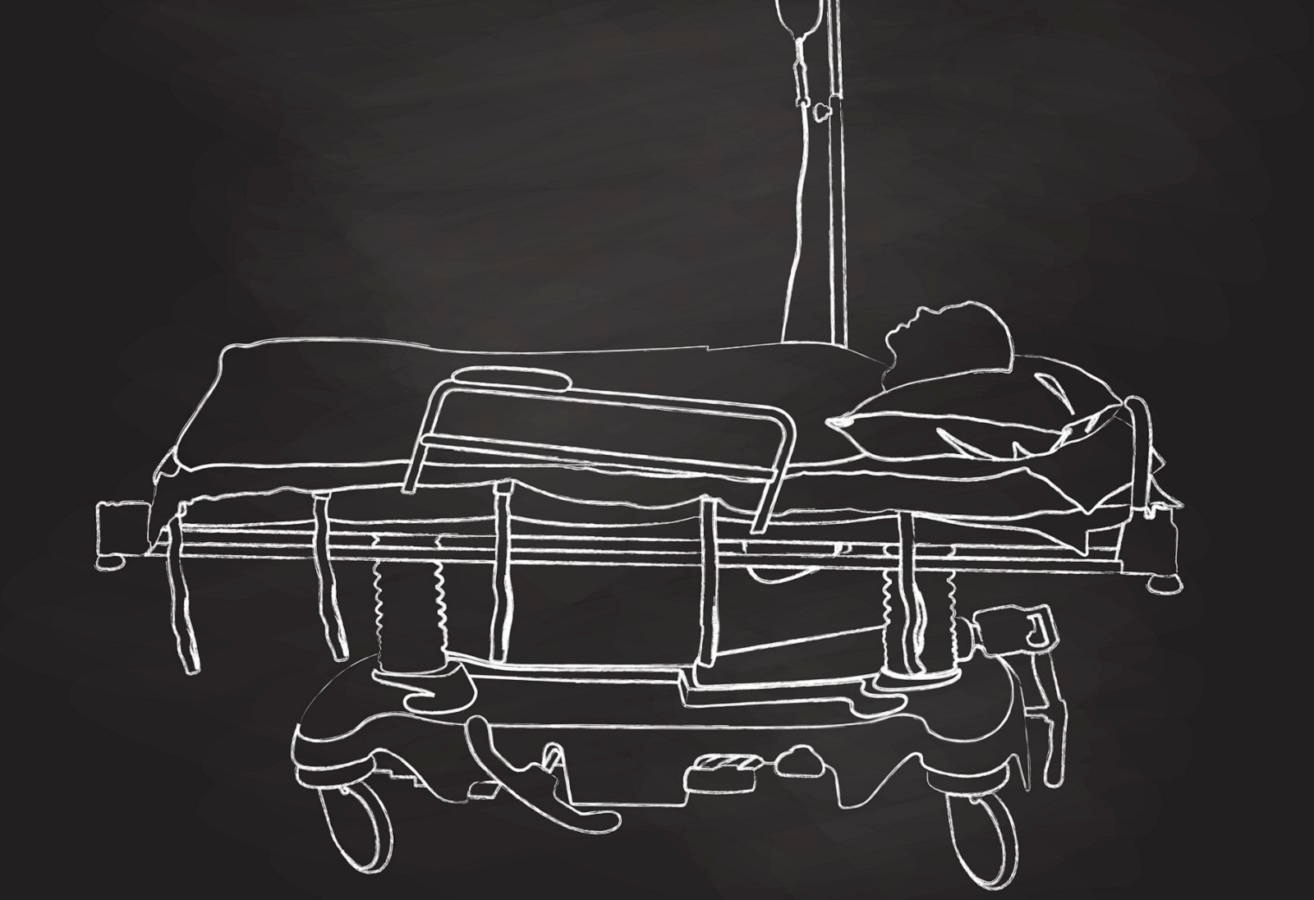Hospice is an approach to caring for individuals who are suffering from terminal illnesses and are expected to live for six months or less. Patients are typically referred to hospice care when further medical treatment is not expected to reverse the course of their disease. Patients who choose hospice care opt to forego aggressive medical care aimed at curing them in favor of therapies geared toward reducing pain and sustaining the highest quality of life for as long as possible. The decision to choose hospice care is a personal one, as is the amount in which Jewish tradition informs one’s choices for end of life care. The following is a general overview of contemporary Jewish perspectives on the topic.
Does Judaism require life-prolonging interventions in all cases?
No. While some Jewish authorities are very stringent in these matters, there is ample support in Jewish tradition for ceasing interventions that offer no hope of cure and serve merely to delay death. The (Avodah Zarah 18a) offers support for this idea in the story of the second-century sage Rabbi Hanina ben Teradion, whom the Romans wrapped in a scroll and set afire as punishment for teaching Torah. A damp piece of wool was placed on his chest to prolong the agony of his execution. When the executioner asked the rabbi if removing the wool and allowing the rabbi to die faster would grant the executioner a life in the world to come, the rabbi said yes. At that point, the executioner removed the wool and leaped into the flames. After both of them perished, a divine voice called out that both the rabbi and the executioner had been granted life in the world to come.
A similar idea is conveyed in the ruling of Rabbi Moshe Isserles, known as the Rema, who in his commentary on the Shulchan Aruch writes that while it is strictly forbidden to take any active steps to hasten death, it is permissible to remove obstacles to the soul’s departure. The example given is of a sound — for example, the noise from a woodchopper — that can be stopped if it is preventing a dying person from departing.
Does Judaism allow a person to turn down medical intervention?
Jewish tradition generally requires that every effort be made to sustain and extend life, but that position is not absolute. In cases where diseases cannot be cured and medical interventions would be risky, painful, of uncertain efficacy or serve merely to prolong a life of unbearable physical or psychic pain, there is support in Jewish law for an individual’s right to reject such treatment.

Help us keep Jewish knowledge accessible to millions of people around the world.
Your donation to My Jewish Learning fuels endless journeys of Jewish discovery. With your help, My Jewish Learning can continue to provide nonstop opportunities for learning, connection and growth.
Within the Conservative and Reform movements, the autonomy of individuals to make decisions concerning their health care, including the right to refuse such care, is given broad standing. Two 1990 Conservative papers allow a patient to refuse treatment if the patient believes they cannot bear it and its efficacy is in doubt. In 2008, the Reform movement’s rabbinic authorities stated that a lung cancer patient was not obligated to undergo treatment that offered only three months of life extension while causing significant pain and suffering. “One is obligated to accept treatment that offers a reasonable prospect of therapeutic effectiveness, the attainment of an accepted medical purpose,” the statement read. “The purchase of an additional three months of life in a pain-filled and dying condition does not, in our judgment, meet that standard.”
The 20th-century American Orthodox authority Rabbi Moshe Feinstein ruled that “those individuals whom the physicians recognize cannot be cured . . . but could receive medications to extend their lives, in which they would suffer, should not be given such medications.” The late Israeli authority Rabbi Shlomo Zalman Auerbach issued a similar ruling, stating that “it is reasonable that if the patient experiences great pain and suffering, or even extremely severe psychological pain … it is permissible to withhold medications that cause suffering to the patient if the patient so demands.” (Most Orthodox authorities do not consider nutrition, hydration and oxygen, even if artificially provided, to be medical treatments and generally do not permit them to be discontinued.)
Does hospice mean I’m giving up?
For many, the term “hospice” connotes resignation in the face of death and seems to run counter to the Jewish imperative to seek life and preserve it. However, various studies suggest that hospice patients often live longer and do better than those who opt for more aggressive treatment. A 2011 study of lung cancer patients found that hospice patients fared better on average than those who received more aggressive care. A 2007 study found that hospice patients diagnosed with congestive heart failure, lung cancer, pancreatic cancer and marginally significant colon cancer lived “significantly longer” than counterparts undergoing aggressive medical treatment. A 2010 study published in the New England Journal of Medicine found that for patients suffering from non-small-cell lung cancer, early palliative care after diagnosis appeared to prolong their life expectancy even as they received less aggressive end-of-life treatment.
“Any good hospice program is geared to stretch or lengthen or try to manage one’s time based on the limitations,” says Rabbi Charles Rudansky, the director of pastoral care at MJHS Hospice and Palliative Care. “There’s no hospice that’s accredited that is hastening anyone’s demise.”
How do I ensure that hospice decisions are made in accordance with my wishes – Jewish or otherwise?
Hospice professionals advise patients to take a range of preparatory steps well before major decisions need to be made, including speaking with family, identifying priorities for end-of-life care and naming a health care proxy and possibly a rabbinic adviser to assist in ensuring decisions are made in conformity with religious requirements. Choosing a specifically Jewish hospice program may also make it easier to ensure that Jewish traditions and customs are respected.
A number of Jewish organizations also offer advance directive forms (sometimes known as a living will or health care proxy) that allow patients to declare particular rabbinic advisers who should be consulted in making critical end-of-life care decisions.
Rabbinical Council of America (Modern Orthodox)
Agudath Israel of America (Haredi Orthodox)
Rabbinical Assembly (Conservative movement)
Living Wills for specific states
Is hospice discussed in Jewish texts?
Not explicitly. The modern concept of hospice care has been around only since the 1970s. However, in addition to the passages noted above, several other sources are commonly cited in support of a compassionate approach to palliating pain and allowing for a peaceful death.
Among the most frequently cited is a story recorded in the Talmud (Ketubot 104a) about Rabbi Yehuda Hanassi (Judah the Prince), the chief compiler of the , who was dying of an apparent stomach ailment. The rabbis were praying for his recovery, but Rabbi Yehuda’s maidservant, noticing her boss’ distress, prayed for his death. Seeing that the prayers of the rabbis were acting as a sort of spiritual life-support keeping Rabbi Yehuda alive the maidservant ascended the roof of the house and threw down a jug — momentarily silencing the prayers and allowing the ailing rabbi to die. Commenting on this passage, the 14th-century Catalonian Talmud scholar Rabbenu Nissim observed: “There are times when one should pray for the sick to die, such as when the sick one is suffering greatly from his malady and his condition is terminal.”
Another story, recorded in the Yalkut Shimoni, a compilation of ic commentaries on the Bible, concerns a woman who came before the second-century sage Rabbi Jose ben Halafta and complained that she was old and sick, could no longer taste food and drink, and wished to die. The rabbi asked her which commandment she is grateful to perform each day, and she responded that it is the commandment of going to synagogue. The rabbi instructed her not to go for three days, the woman complied, and on the third day she died.
Is hospice compatible with Judaism?
Jewish tradition regards every moment of human life as infinitely valuable.
Rabbis from the more liberal denominations view hospice as a legitimate Jewish option for those suffering from terminal disease. The Reform movement has long endorsed hospice as a practice consistent with Jewish values. And both of the Conservative movement’s major papers on end-of-life care, adopted in 1990, endorse hospice as a life-affirming and, perhaps, even Jewishly preferable option.
“One may not choose hospice so as to die more quickly, but, rather, only in order to live one’s remaining days in the best way possible,” Rabbi Avram Reisner wrote in one of the Conservative documents. “As such, instructions to the hospice should clearly state that while only palliation is in order for the immediate incurable condition, other unrelated and curable conditions that may arise, such as infections, should be treated in line with standard medical care. Jewish hospice must be an attempt to live one’s best with dignity, not an attempt to speed an escape into death.”
Some authorities hold that hospice is antithetical to Jewish tradition since it entails rejecting aggressive medical interventions to cure terminal disease in favor of a focus on pain reduction and enhanced quality of life. These authorities often cite sources in Jewish law indicating that efforts to extend human life should be made even in cases where life can be extended only by a few moments. The Shulchan Aruch rules that the Torah mandates healing and that a physician who withholds such treatment is guilty of causing harm.
Many contemporary authorities, however, argue that Jewish tradition allows a focus on comfort and pain reduction and the eschewing of aggressive medical interventions in certain circumstances. Rabbi Moshe Feinstein ruled that a patient may be referred to hospice if he or she requests it and is experiencing such intense physical or psychological pain that his or her quality of life is severely diminished.
Does hospice raise any other Jewish concerns?
Yes. Jewish law generally mandates that a patient never be deprived of the most elemental forms of human sustenance — food, water and oxygen — even if they are artificially provided. (This position is not universal — some authorities consider feeding tubes and the like to be forms of medical intervention that can be withdrawn or rejected under certain conditions.) For hospice patients concerned about complying with Jewish law, it may be necessary to ensure that hospice care continues to provide intravenous fluids and hydration as religiously required.
Jewish tradition also raises concerns about fully disclosing to a patient the fact that a condition is terminal, lest the patient be deprived of a will to live. Some contemporary religious authorities are emphatic that a patient should never be told explicitly that their condition is hopeless — a position that clashes with contemporary medical ethics, which considers patient autonomy a cardinal principle. Medical professionals familiar with the requirements of Jewish law in this respect are often able to transition a patient to hospice without fully disclosing the particulars of their diagnosis.
Other Resources
“End of Life: Jewish Perspectives” By Rabbi Elliot Dorff
“Advanced Illness and Orthodox Jewish Law: Approaches to Communication and Medical Decision Making”
Sign up for a Journey Through Grief & Mourning: Whether you have lost a loved one recently or just want to learn the basics of Jewish mourning rituals, this 8-part email series will guide you through everything you need to know and help you feel supported and comforted at a difficult time.
Looking for a way to say Mourner’s Kaddish in a minyan? My Jewish Learning’s daily online minyan gives mourners and others an opportunity to say Kaddish in community and learn from leading rabbis.




